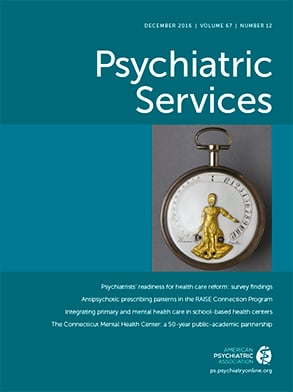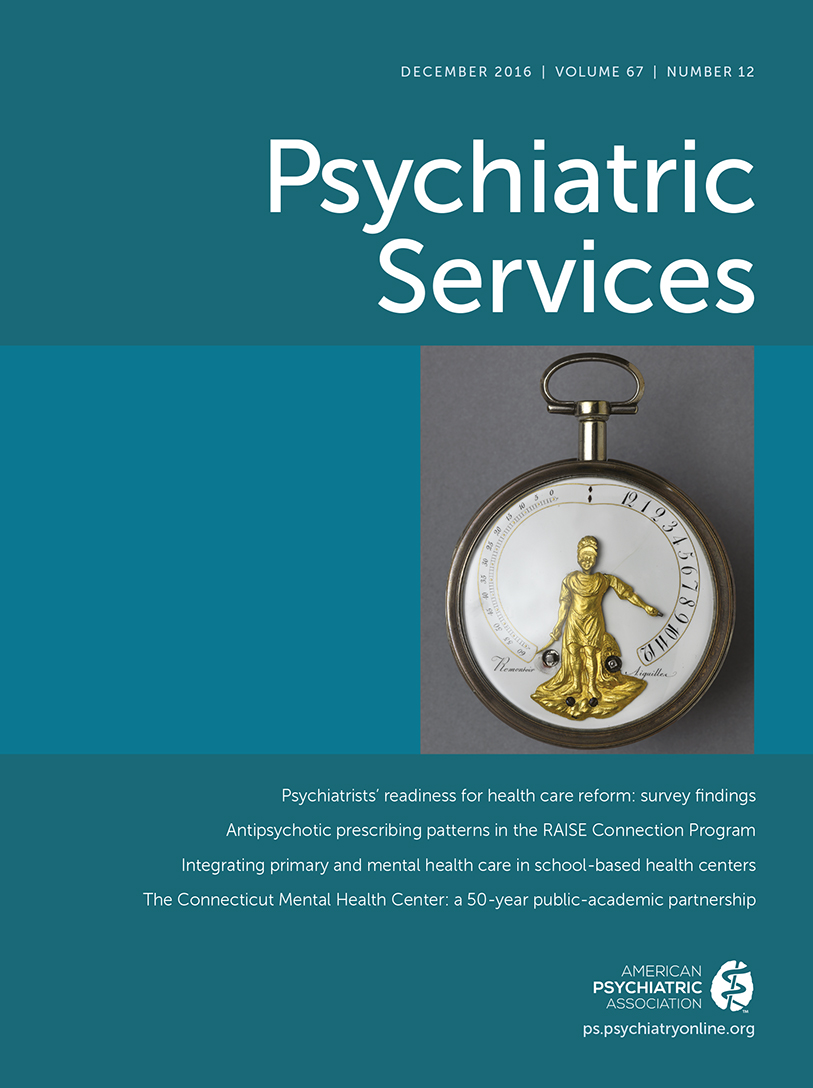TO THE EDITOR: A 2015 review published in
Psychiatric Services detailed superior housing outcomes for Housing First; however, the author noted limited examination of case management practices (
1). This letter describes an ethnographic observation of case management at four Department of Veterans Affairs (VA) medical centers (two on the East Coast, one in the South, and one in the Midwest) that sought to open the “black box” of case management in a large-scale system implementing Housing First under real-world conditions.
In the VA, a Housing First policy governs a program (HUD-VASH) that combines rental vouchers with VA supportive services. Housing First bundles permanent housing and supportive services without requiring clients to fulfill treatment-related preconditions (
2).
Two ethnographers (ELA and DEP) shadowed six case managers (three social workers and three nurses), observing 16 attempted client contacts, 13 completed client interactions, and three team meetings. Analysis combined debriefing memos, detailed narratives, and consensus-based team review. Case management interactions occurred in multiple settings (apartment, hospital, car, and shelter) and via telephone.
Case managers planned their days to optimize travel across wide geographic areas and used reminder calls to minimize missed encounters. Common discussion topics between clients and case managers included medication management and medical issues, mechanics of housing placement and retention, and mental health (especially suicide prevention). Other topics included job training, eligibility for services, support groups, legal advice, anger management, parenting skills, transportation assistance, and social and recreational activities. Although case managers reported that substance abuse was prevalent among clients, we observed only a single interaction focused on substance use.
Case management diverged substantially from Housing First recommendations (
2) because of extremely high caseloads (often 25 or more clients) and lack of 24/7 coverage. Capacity to adjust service intensity for clients in crisis was variable, although two sites were able to reassign clients in crisis to special high-acuity case management teams. Social workers constituted the majority of providers at observed team meetings, although each meeting included a mental health provider or nurse. Only one team meeting included a substance use disorder specialist. All team meetings lasted fewer than 90 minutes, and only one team systematically reviewed all clients.
This ethnographic observation identified challenges in transitioning to the Housing First approach from a more traditional model. The extremely limited discussion of substance use suggests that case managers accustomed to abstinence-contingent interventions may lack the training or confidence to address substance use from a harm reduction perspective. Although Housing First emphasizes team-based care, the approach observed at these sites involved individual, largely independent case managers brokering supportive services for their clients. Case managers’ comfort with (and expectation of) independence may hinder the adoption of multidisciplinary, team-based sharing of work. Finally, the risks posed by insufficient case manager time and attention remain a significant concern. Prior studies have identified important differences in perspectives on recovery offered by case managers in Housing First and those in traditional programs (
3–
5). This ethnography highlights logistic challenges that can affect Housing First implementation, separate from provider perspectives. Organizations transitioning from traditional to Housing First case management approaches should carefully consider case management ratios and the potential need for additional training.

